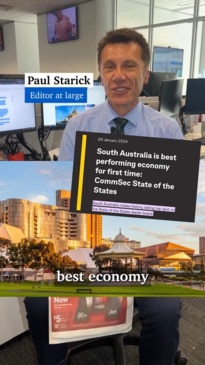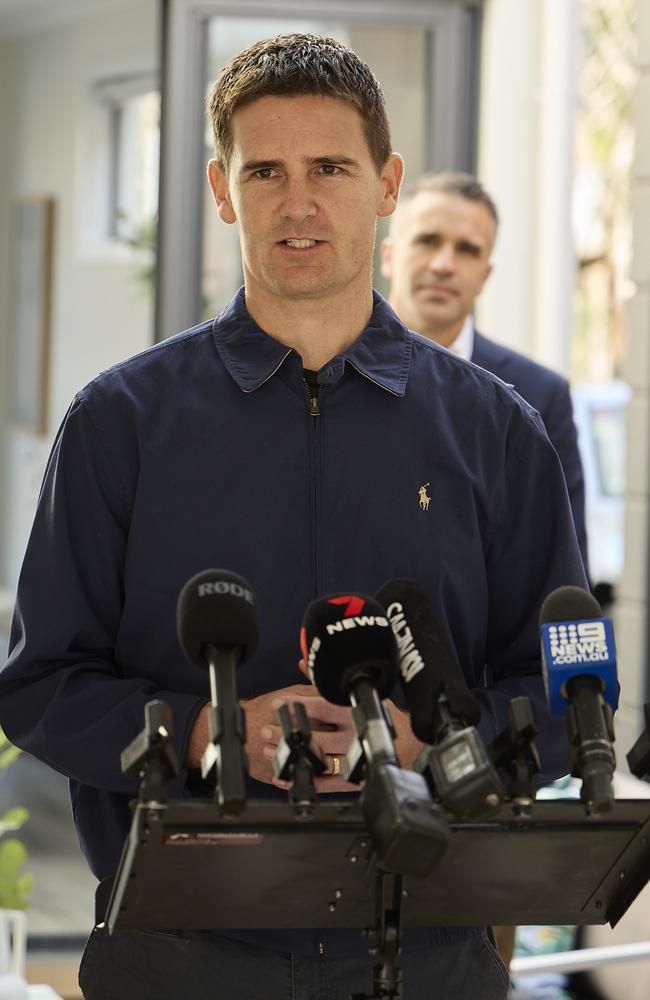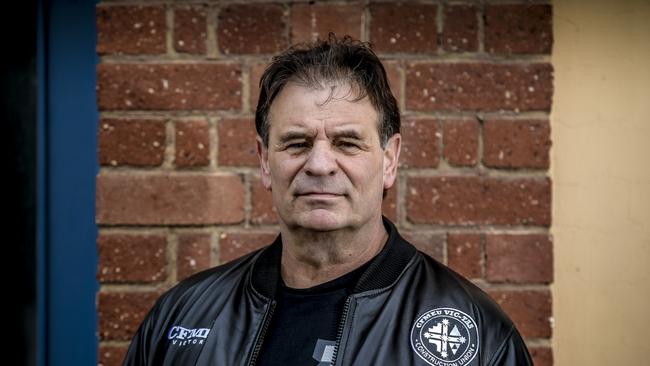Master Builders SA wary of CFMEU’s Victoria EBA pay deal
Labourers and stop sign holders could soon earn $120,000 a year under a CFMEU pay deal in Victoria – but one industry leader says any move to bring a similar wage increase to South Australia would have big economic implications.

SA News
Don't miss out on the headlines from SA News. Followed categories will be added to My News.
Aggressive union negotiations that could drive traffic controller wages up to $120,000 a year in Victoria would threaten South Australia’s economy, an industry leader fears.
The CFMEU is set to sign a new workplace agreement that will see the union’s workers reap a 5 per cent pay rise, meaning labourers and junior stop-sign holders working a 35-hour week on construction sites could earn $120,000.
The deal would mean basic labourers and traffic controllers would earn more than $2000 a week over the three-year agreement, and comes despite concerns about high construction industry costs in Victoria.
And with the CFMEU’s SA branch now merged under Victoria, there are fears similarly aggressive enterprise bargaining agreements could come into effect in coming years.
Master Builders SA chief executive Will Frogley said he “couldn’t care less” what the Victorian CFMEU did in Victoria, but similar hikes in South Australia would threaten the state’s industry and economic rating.
The latest CommSec report said construction activity and a strong job market helped South Australia top the economic performance leaderboard for the first time in 15 years.

“But their high volume, high cost model has no place in South Australia,” he said.
“It’s the height of Victorian arrogance to try and replicate a failed system in other states.
“There’s a real risk a lot of projects won’t stack up.”
Victoria accounted for more than 26 per cent of all construction insolvencies in 2023, while South Australia accounted for 2.7 per cent.
Across all industries, 28.4 per cent were in Victoria and 19 per cent in SA.
Mr Frogley said South Australia was a “very different market” to Victoria, and said Melbourne was considered one of the most expenses places to build in the world.
“We (South Australia) is a large country town, and most people in the industry know each other, there’s good collaboration between workers and the union, and we would like that to continue,” he said.
He reiterated his belief the CFMEU should be run by someone based in South Australia to understand the industry and the differences it has to other states.
“If the Crows or Power were run out of Melbourne, I don’t think their fan bases would be convinced the club really wanted to win a flag,” he said.
“It’s the same with the construction industry.
“Many of the non-financial benefits the Victorian CFMEU are spruiking already exist in South Australia and are backed by the state government, such as RISE – a free mental health program for everybody in the industry, Mates in Construction, a suicide prevention service, and the Construction Industry Training Board, which is funded by an industry levy.”

CFMEU boss John Setka told the Herald Sun workers were entitled to health wage hikes during a cost-of-living crisis.
“It could be more than 5 per cent (a year),” he said.
“Everyone is allowed to increase the cost of everything but we are not allowed to increase wages – fair dinkum? “We want a pay rise to keep up with the cost of living and we are not allowed? We are not going to be the sacrificial lambs.”
Mr Setka said the union wasn’t ruling out industrial action if a deal was “derailed”.
While the 5 per cent increase is set to be signed in Victoria, negotiations started at more than double that.
Initial talks were as high as 12 per cent.
The CFMEU WA clinched a 25 per cent pay rise deal with building giant Multiplex earlier this month, including an immediate 10 per cent rise.
The four-year agreement includes three annual 5 per cent rises and increased overtime.
It lists the annual pay of a Multiplex level 3 construction worker on a 56-hour week from $151,936 to $194,400 by January 2027, The Australian reported.
The CFMEU was contacted for comment.





